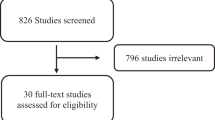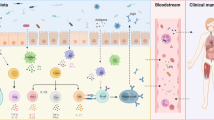
Overview
Discusses role of microorganisms in pathogenesis and management of autoimmune diseases
Provides colour illustrations and tables explaining the mechanistic aspects and emerging information of the field
Scientifically applicable and relevant content for readers of medical microbiology, immunology, and medicine
Buy print copy
About this book
Contributions in the book focus on the role of microbiota/probiotics and their distinct mechanisms exerted in the management of autoimmune diseases of the kidney, central nervous system, eye, blood vessel, and bowel. This could help in better understanding to design of therapeutic strategies that can be deployed to prevent these autoimmune diseases.
The book has an interdisciplinary appeal and scholars with an interest in immunology, medical microbiology, and nutritional sciences will value its contribution. Overall, the book gives new dimension and insight into the aspects of microbial role in autoimmune disease pathogenesis.
Similar content being viewed by others
Keywords
Table of contents (25 chapters)
-
Front Matter
-
Human Microbiome, Vaccines and Autoimmunity
-
Front Matter
-
-
Microorganisms in Pathogenesis and Management of Autoimmune Kidney Diseases and Adrenal Insufficiency
-
Front Matter
-
-
Microorganisms in Pathogenesis and Management of Central Nervous System (CNS) Demyelinating Autoimmune Diseases
-
Front Matter
-
-
Microorganisms in Pathogenesis and Management of Inflammatory Bowel Diseases (IBDs)
-
Front Matter
-
Editors and Affiliations
About the editors
Dr. A. Sankaranarayanan is an Associate Professor in Department of Life Sciences, Sri Sathya Sai University for Human Excellence, Kalaburagi, Karnataka, India from June 2021 onwards. His current research focus is on fermented food products. He has published 10 books, 35 chapters, 63 research articles in International and National journals of repute, guided 5 Ph.Ds, 16 M.Phil, scholars and operated 5 minor funded projects in Microbiology. From 2002 -2015, he worked as an Assistant Professor & Head, Department of Microbiology, K.S.R. College of Arts & Science, Tiruchengode, Tamil Nadu and August, 2015- May, 2021 associated with Uka Tarsadia University, Surat, Gujarat, India. He has awarded with Indian Academy of Sciences (IASc), National Academy of Sciences (NAS) and The National Academy of Sciences (TNAS) sponsored summer research fellowship for young teachers consecutively for three years and name is included as a Mentor in DST-Mentors/Resource persons for summer/winter camps and other INSPIRE initiatives, Department of Science & Technology, Govt. of India, New Delhi. He is a Grant reviewer in British Society of Antimicrobial Chemotherapy (BSAC), UK.
Dr. E. Helen Kemp completed her PhD in Microbiology at the University of Warwick and the Centre for Applied Microbiology and Research, Salisbury, in 1988. Since 1989, she has worked at the University of Sheffield as a Research Fellow in the Medical School. She has long-standing interests in the autoimmune and genetic aspects of the depigmenting disease vitiligo, characterising autoimmune responses against the calcium-sensing receptor in patients with parathyroid autoimmunity, and the aetiology of autoimmune thyroid disease. She has published more than 70 research papers in these areas of research and has contributed to books and review articles in the field of autoimmunity.
Professor Yehuda Shoenfeld is the founder and head of the Zabludowicz Center for Autoimmune Diseases, at the Sheba Medical Center, which is affiliated to the Sackler Faculty of Medicine in Tel-Aviv University, in Israel. Professor Shoenfeld is also the Incumbent of the Laura Schwarz-Kipp Chair for Research of Autoimmune Diseases at the Tel-Aviv University. Professor Shoenfeld’s clinical and scientific works focus on autoimmune and rheumatic diseases, and he has published more than 2250 papers in journals such as New Eng J Med, Nature, Lancet, Proc Nat AcadScie, J Clin Invest, J Immunol, Blood, FASEB, J Exp Med, Circulation, Cancer and others. His articles have had over 65,000 citations. His Scopus h-index is 123. He has written more than 350 chapters in books, and has authored and edited 35 books, some of which became cornerstones in science and clinical practice, such as "The Mosaic of Autoimmunity", "Infections and Autoimmunity" and the textbook "Autoantibodies" and "Diagnostic criteria of autoimmune diseases", all of which were published by Elsevier and sold thousands of copies. Professor Shoenfeld is on the editorial boards of 43 journals in the field of rheumatology and autoimmunity and is the founder and the editor of the IMAJ (Israel Medical Association Journal) the representative journal of science and medicine in the English language in Israel, and also is the founder and Editor of Autoimmunity Reviews (Elsevier) (Impact factor 9.975) and co-Editor of the Journal of Autoimmunity (Impact factor 7.o). For the past twenty years Yehuda has been the Editor of “Harefuah” – The Israel journal in medicine (Hebrew). Professor Shoenfeld received the EULAR prize in 2005, in Vienna, Austria: "The infectious etiologyof anti-phospholipid syndrome", and received a gold medal from the Slovak Society of Physicians for his contribution to Israel – Slovakia collaboration (March 2006). He is also an honorary member of the Hungarian Association of Rheumatology and the Royal Society of Physicians (UK). In UC Davis, USA, Professor Shoenfeld received the Nelson's Prize for Humanity and Science for 2008. In 2009 he was honoured as Doctoris Honoris Causa, from Debrecen University (Hungary) and Hasselt University in Belgium( 2018) , and from 2009 he is honorary member of the Slovenian National Academy of Sciences. He was recently awarded a Life Contribution Prize in Internal Med^55 becoming heads of departments and institutes.
Bibliographic Information
Book Title: Role of Microorganisms in Pathogenesis and Management of Autoimmune Diseases
Book Subtitle: Volume II: Kidney, Central Nervous System, Eye, Blood, Blood Vessels & Bowel
Editors: Mitesh Kumar Dwivedi, A. Sankaranarayanan, E. Helen Kemp, Yehuda Shoenfeld
DOI: https://doi.org/10.1007/978-981-19-4800-8
Publisher: Springer Singapore
eBook Packages: Biomedical and Life Sciences, Biomedical and Life Sciences (R0)
Copyright Information: The Editor(s) (if applicable) and The Author(s), under exclusive license to Springer Nature Singapore Pte Ltd. 2022
Hardcover ISBN: 978-981-19-4799-5Published: 02 January 2023
Softcover ISBN: 978-981-19-4802-2Published: 03 January 2024
eBook ISBN: 978-981-19-4800-8Published: 01 January 2023
Edition Number: 1
Number of Pages: XXI, 542
Number of Illustrations: 1 b/w illustrations
Topics: Immunology, Biomedicine, general



